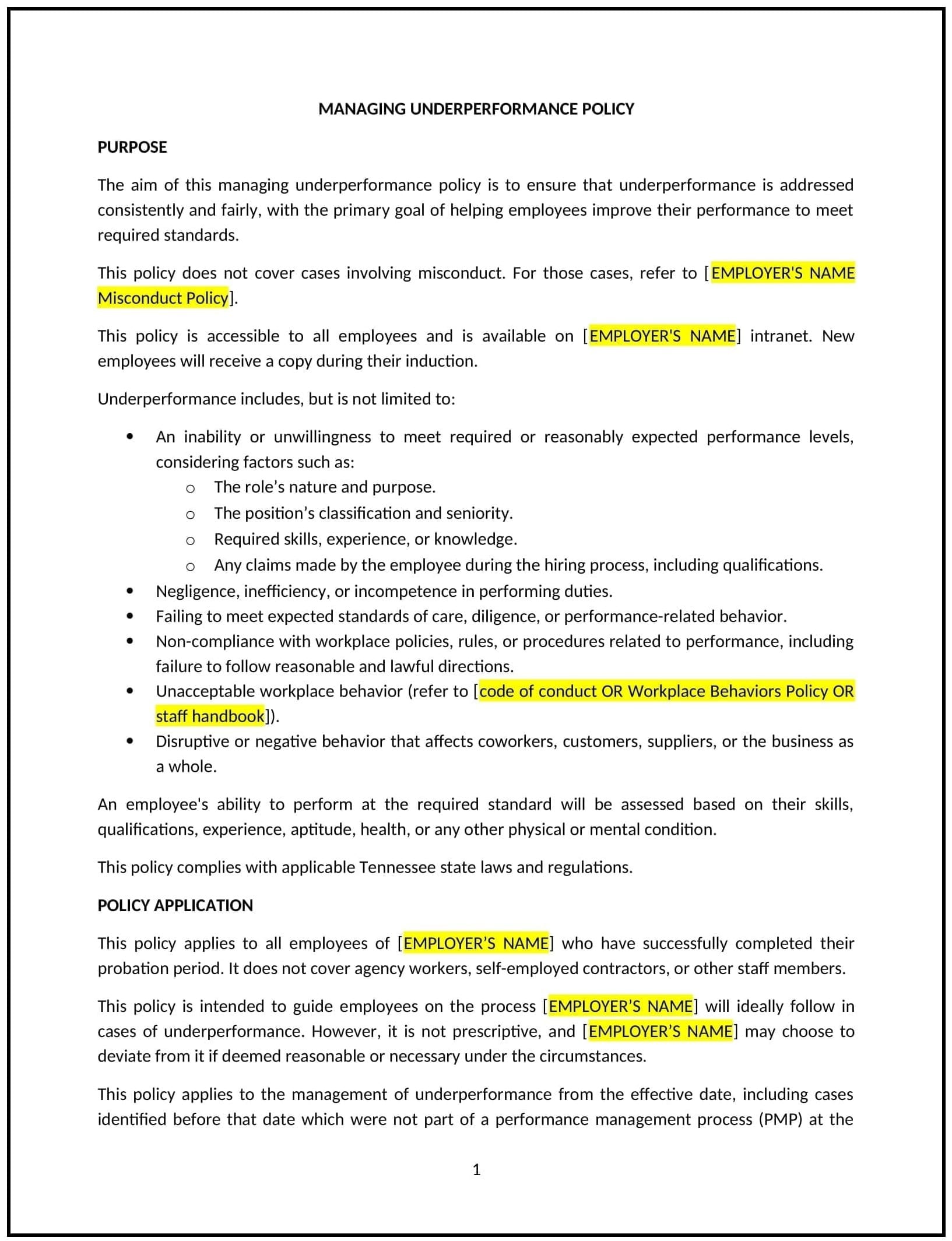Managing underperformance policy (Tennessee): Free template
Got contracts to review? While you're here for policies, let Cobrief make contract review effortless—start your free review now.

Customize this template for free
Managing underperformance policy (Tennessee)
This managing underperformance policy is designed to help Tennessee businesses establish guidelines for addressing employee performance issues. It outlines procedures for identifying, documenting, and improving underperformance in a fair and constructive manner.
By adopting this policy, businesses can support employee development, maintain productivity, and foster a positive workplace culture.
How to use this managing underperformance policy (Tennessee)
- Define underperformance: Clarify what constitutes underperformance, such as missed deadlines, poor quality work, or failure to meet job expectations.
- Set performance improvement steps: Outline a structured process for addressing underperformance, including setting clear goals and timelines.
- Provide support: Offer resources to help employees improve, such as training, mentoring, or additional supervision.
- Document performance issues: Maintain records of performance discussions, improvement plans, and outcomes.
- Train managers: Educate supervisors on handling underperformance fairly and constructively.
- Review and update: Assess the policy annually to ensure it aligns with evolving business needs and employee expectations.
Benefits of using this managing underperformance policy (Tennessee)
This policy offers several advantages for Tennessee businesses:
- Supports employee development: Provides a structured approach to helping employees improve their performance.
- Maintains productivity: Ensures performance issues are addressed promptly to minimize disruptions.
- Enhances fairness: Demonstrates a commitment to treating employees fairly and transparently.
- Reduces turnover: Builds loyalty by offering support and opportunities for improvement.
- Aligns with best practices: Encourages a constructive approach to managing underperformance.
Tips for using this managing underperformance policy (Tennessee)
- Communicate the policy: Share the policy with employees and include it in the employee handbook.
- Provide training: Educate managers on handling underperformance fairly and constructively.
- Monitor compliance: Regularly review performance improvement plans and outcomes.
- Address issues promptly: Take corrective action if underperformance persists despite support and interventions.
- Update regularly: Assess the policy annually to ensure it aligns with evolving business needs.